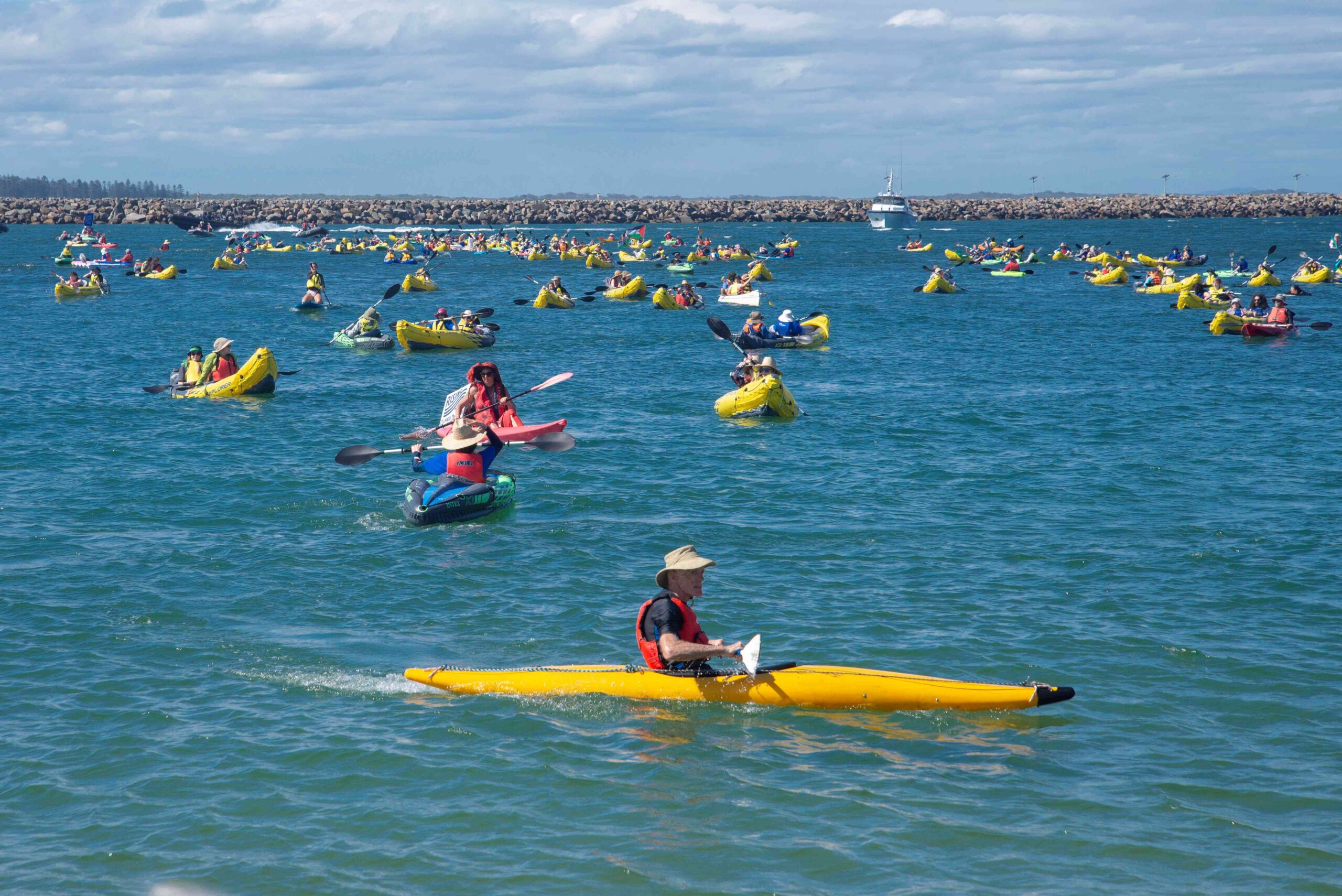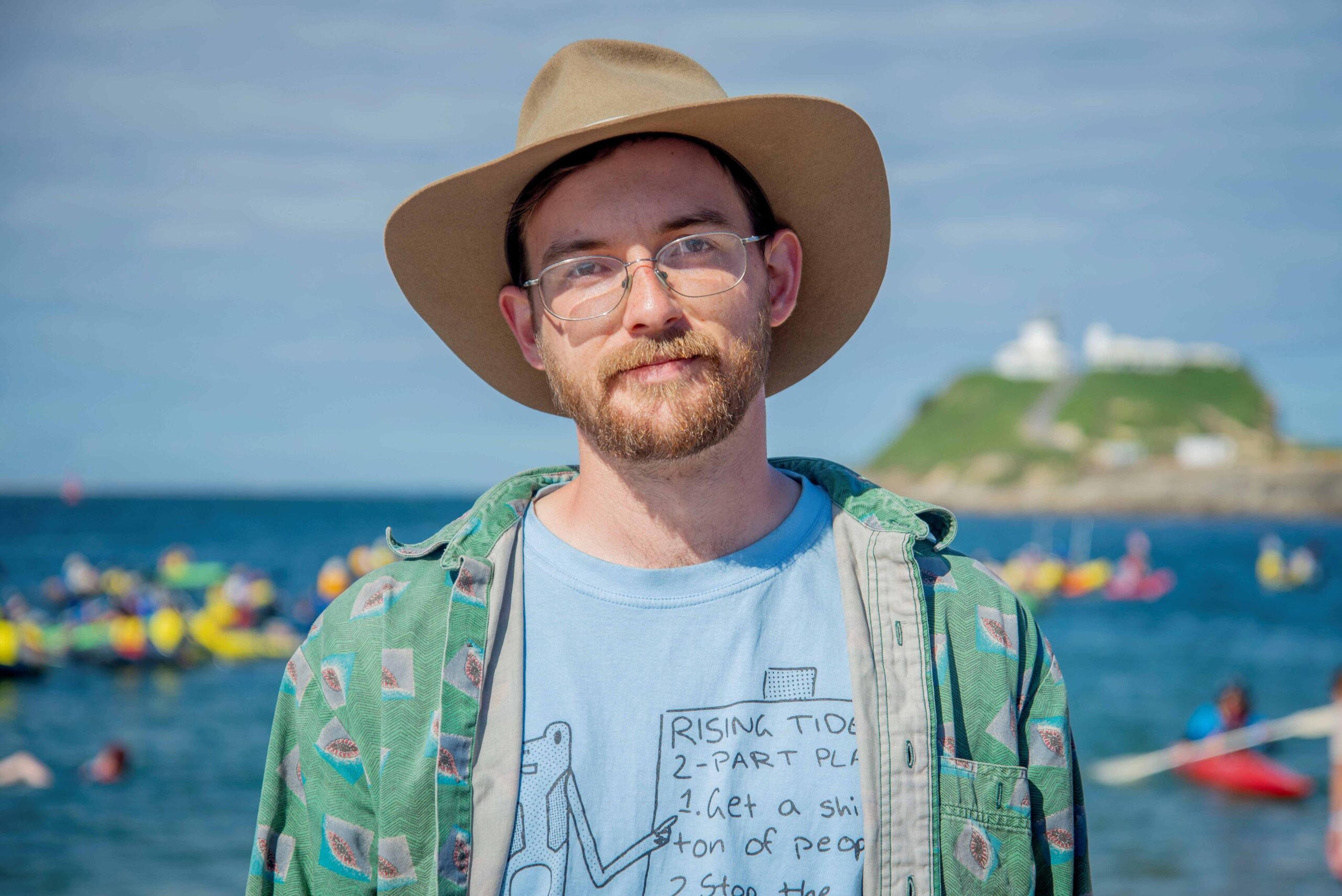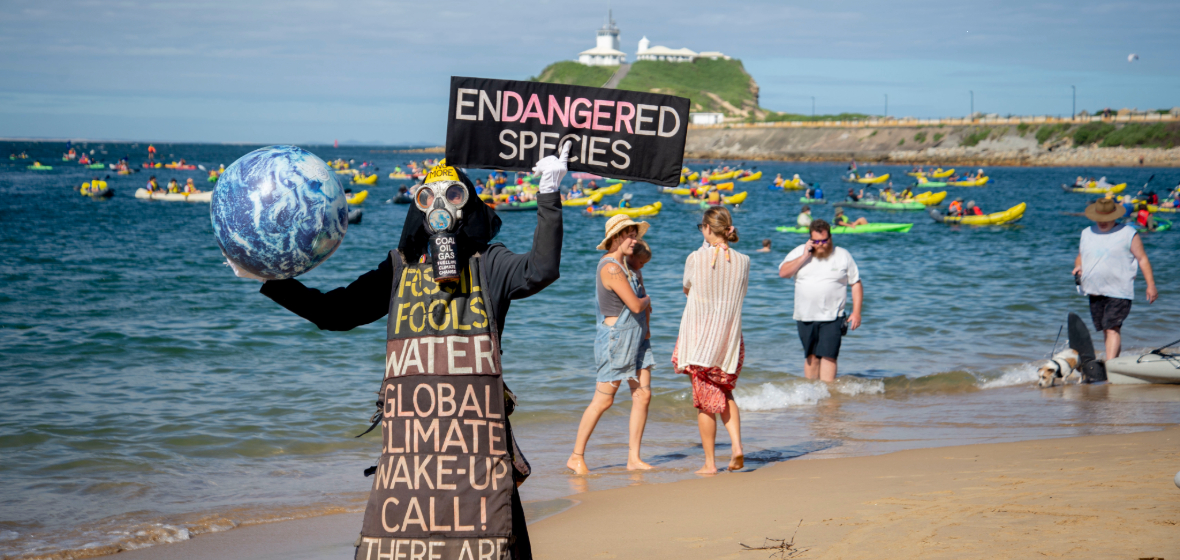Working conditions, women’s suffrage, and First Nations’ rights: Australia’s recent history is dotted with examples of change being forced by peaceful assembly and association – or protest.
David Mejia-Canales, Senior Lawyer at the Human Rights Law Centre, describes the right to protest as being “foundational to any healthy democracy”.
“It empowers individuals and communities to express dissent, challenge injustices, and advocate for change,” he says.
“It is not merely an exercise of free speech but a vital mechanism for holding governments and institutions accountable.”
But a 2024 report authored by Mejia-Canales, titled Protest in Peril, notes that over the last 20 years most governments around Australia have “proposed and enacted laws to limit protest rights that are incompatible with our international human rights obligations”.
The state of greatest concern, according to the report, is New South Wales.
“NSW has taken a markedly punitive approach to peaceful public participation,” Mejia-Canales says.
“Over the past two decades, the state has enacted numerous laws that impose severe penalties for activities traditionally protected under the right to peaceful assembly.
“These measures disproportionately affect environmental and social justice movements, reflecting a broader trend of using public safety as a pretext to stifle dissent.”

Unlike states such as Queensland, there is no specific statutory basis protecting the right to protest in NSW. Instead, as an essential form of communication, the right to public assembly is largely based in common law.
“It is notable that Victoria and Queensland both have Human Rights Acts that require their parliaments to consider the human rights impacts of legislation during the legislative process,” Mejia-Canales says.
“NSW does not have a Human Rights Act and this could be why laws that limit public participation are so broad and punitive compared to other jurisdictions.”
While the right to public assembly is not illegal in NSW, those participating in unauthorised protests can still be charged with offences such as obstruction and failure to comply with police orders.
There is a suite of legislation that unauthorised protests risk violating, including the Crimes Act 1990 and the Summary Offences Act 1988, as well as other laws specifically related to roads, forestry, mining, and marine operations.
An example of the state’s trend toward more severe punishment for protest, Mejia-Canales says, is The Roads and Crimes Legislation Amendment Act 2022 which significantly increased penalties for protests that disrupt major infrastructure – imposing fines of up to $22,000 and prison terms of up to two years.
Mejia-Canales says this kind of legislation “imposes severe penalties for peaceful protests that cause even the smallest of temporary disruptions”.
“These broad, vague and excessively punitive measures go beyond what is necessary to protect public safety or order and disproportionately suppress legitimate dissent.”
In 2023, the constitutionality of section 214A of the Crimes Act 1990, which was introduced by the amendment, was challenged in the case Kvelde v State of New South Wales.
The court found two subsections, dealing with the redirection of people trying to use a major facility, and the closure of part of a major facility, to be invalid due to their impact on the implied freedom of political communication.
The Minns Government recently introduced the Crimes Amendment (Obstructing a Railway) Bill 2024 which would see fines of up to $22,000 and potential two-year imprisonment for obstructing a railway.
According to the government, the bill is aimed at deterring “extremely dangerous conduct that puts train driver, rail worker and passenger safety at risk”.
“Recent protests have centred on railway lines, putting everyone’s safety at risk,” NSW Premier Chris Minns said.
“Protests on railway lines are seriously dangerous and disruptive, and they are not tolerated in NSW.”

Newcastle-based environmental activism group, Rising Tide, has been responsible for stopping a number of coal trains in the Hunter throughout 2023 and 2024.
Rising Tide organiser and law student Zack Scofield says that despite the “chilling” effect of these types of amendments, protests will continue.
“People who protest on the rail line are doing it because they feel they have no other choice,” Scofield says.
“They’re doing it because they see a government that has systematically refused to listen to citizens, to listen to science, in prioritisation of corporate interests.
“Until that changes, people will not stop protesting. The government can’t just arrest their way out of this problem.”
Rising Tide’s blockade of world’s largest coal port
Claiming to be one of the first grassroots climate groups in Australia, Rising Tide was active around Newcastle from 2005 until 2012.
In recent years the group has returned with an ambition to cancel new fossil fuel projects, tax fossil fuel export profits at 78 per cent, and end coal exports from Newcastle by 2030.
Rising Tide is involved in a range of nonviolent protests, the largest being its People’s Blockade of the World Largest Coal Port.
“Last year, our version of Rising Tide held the 2023 blockade and that looked like a 30-hour occupation of the shipping channel in Newcastle Port which is the largest coal port in the world,” Scofield says.
“Newcastle is an important symbolic place for climate action and a really important place for the energy transition.”
Following the authorised 30-hour period in 2023, more than 100 protestors who remained on the water were arrested.
This year, the group had plans for a 50-hour blockade of the shipping channel, alongside a multi-day festival adjacent to the beach, running from November 20 to 25.
Part 4 of the Summary Offences Act 1988 establishes a process whereby groups looking to hold a protest can consult with police in order to have their event authorised. This involves the group submitting a Notice of Intention to Hold a Public Assembly – commonly referred to as a Form One – to the NSW Police Commissioner.
Rising Tide submitted a Form One to the Commissioner on 9 October.
If the Commissioner does not oppose the Form One, the public assembly is deemed to be authorised. This means that if it is held substantially in accordance with the particulars provided in the Form One, participants are not guilty of offences related to unauthorised assembly such as obstructing vehicles or vessels in a public place.
However, if the Commissioner opposes the event, they can apply to the court for a prohibition order. The court will then either authorise or prohibit the public assembly and associated activities.
Prohibition in this instance does not mean the event cannot occur, but rather that it would be deemed “unauthorised” and police would have the right to enforce relevant laws.
In the case of Rising Tide’s blockade, the Commissioner opposed authorisation of the event in the NSW Supreme Court and on 7 November, Justice Fagan deemed both the actions on land and on the water to be prohibited.
“The Form One process itself, I think, is designed to present barriers to protest organisers and present barriers to the protection of the right to protest,” Scofield says.
“In the arguments that NSW Police put forward, they’re essentially suggesting that us disrupting the coal industry was enough to prevent the protest from going ahead.
“It’s the interests of privately-owned, multinational corporations over fundamental democratic rights. That’s quite concerning to me.”
In the ruling, Justice Fagan asserts that the planned protest would be excessive in “both kind and duration” and that the group could “exercise their rights of free assembly and free speech in other ways and over a shorter timeframe” to limit impact on the liberties of the general public.
“We are the general public,” Scofield says.
“Rising Tide is organised from Newcastle. Most of the participants are from Newcastle.
“The only agent in this story that we are negatively impacting is the coal industry. That is who, I think, the government is trying to protect.”
While the judgement commended Rising Tide’s efforts in ensuring water safety, Justice Fagan noted that authorisation of the event would take away the power of police to make arrests under the Marine Safety Act 1998, undermining safety during the event.
Citing water safety training for protestors and the planned presence of a Greenpeace safety boat team, as well as a record of no incidents at previous blockades, Scofield describes the safety concerns as “an absolute excuse”.
Exclusion Zone used to deter protesters
A week before the event was planned to start, the State Government announced it would be creating an “exclusion zone” in Newcastle Harbour to be enforced from 5pm, 21 November to 8am, 25 November.
The exclusion zone applies to most of the harbour and means only authorised vessels are allowed to enter the water – with a maximum failure to comply penalty of $3,300.
Scofield describes this as a “bully tactic”, saying it is a potentially illegal misuse of the Marine Safety Act 1998.
According to the Act, exclusion zones can be applied to any “special event” by notice of a published gazette. A special event is described as “a major race for vessels or other event that may affect the safety of navigation in any particular waters”.
On 21 November, a member of Rising Tide travelled to Sydney to challenge the exclusion zone in the Supreme Court, arguing that it was improper use of the Marine Safety Act.
That afternoon, less than two hours before the exclusion zone was to be enforced, the Supreme Court ruled in favour of Rising Tide, overturning the exclusion zone.
David Mejia-Canales says the decision by the state to enact an exclusion zone in the first instance “raises significant concerns about the prioritisation of economic interests over democratic freedoms”.
As the event goes ahead, Scofield says protestors will continue to turn out across NSW, despite the increased risk of fines and jail time.
“It has emboldened and encouraged others to come because they see a state government basically coming over the top of local council, local organisers,” Scofield says.
“They see that and they’re just incensed and they feel a need to stand up.”
NSW Police says 170 people were arrested and charged over the weekend, for alleged offences including disruption of a major facility and failure to comply with a direction relating to safety.
David Mejia-Canales says the Rising Tide case “underscores the urgent need for judicial and legislative systems to recognise the intrinsic value of protest, even when it causes temporary disruption”.
“Protest is often a last resort for communities and grassroots movements to draw attention to pressing issues,” he says.
“NSW must resist the trend of criminalising dissent under the pretext of public order. Instead, it should foster a legal environment where protest is seen as a cornerstone of democratic engagement, not a threat to it.”




